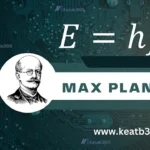Albert Einstein’s Intellectual Odyssey: A Journey Through the Mind of Genius
Albert Einstein, a name synonymous with brilliance and intellectual prowess, stands as a beacon in the realm of theoretical physics. This article delves into the life and contributions of Einstein, tracing his intellectual odyssey from his early years to the formulation of groundbreaking theories that revolutionized our understanding of the universe.
Early Years and Academic Beginnings :
Born on March 14, 1879, in Ulm, Germany, Albert Einstein exhibited an early fascination with mathematics and science. His inquisitive mind and rebellious spirit clashed with the traditional education system, leading him to leave school in Switzerland and pursue independent studies. In 1895, he gained admission to the Swiss Federal Institute of Technology in Zurich, marking the beginning of his formal academic journey.
Einstein’s academic pursuits were marked by a deep commitment to understanding the fundamental principles of the physical world. Despite facing financial challenges, he immersed himself in scientific literature and engaged in discussions with fellow students and professors. His tenacity and intellectual curiosity paved the way for his eventual graduation in 1900.
The Annus Mirabilis Papers :
In 1905, a remarkable year in scientific history, Einstein published four groundbreaking papers that reshaped the landscape of physics. These papers, collectively known as the Annus Mirabilis papers, addressed diverse topics, including the photoelectric effect, Brownian motion, special relativity, and the equivalence of mass and energy (captured by the famous equation E=mc²).
The photoelectric effect paper, which proposed the revolutionary idea that light behaves as both particles and waves, laid the groundwork for quantum theory. Einstein’s explanation of Brownian motion provided empirical evidence for the existence of atoms and molecules, a concept that had long been debated among scientists.
However, it was Einstein’s theory of special relativity that truly revolutionized physics. Challenging classical notions of space and time, this theory posited that the laws of physics are invariant for all observers in uniform motion. The equation E=mc², expressing the equivalence of mass and energy, became an iconic representation of Einstein’s intellectual prowess.
General Theory of Relativity :
Building on the success of special relativity, Einstein turned his attention to a more comprehensive theory of gravitation. In 1915, he presented the general theory of relativity, a profound reimagining of gravity. According to this theory, gravity arises from the curvature of spacetime caused by mass and energy.
The prediction that light bends in the presence of a massive object was experimentally confirmed in 1919, catapulting Einstein to international fame. General relativity not only provided a new understanding of gravity but also offered a framework for interpreting the large-scale structure of the cosmos.
Einstein’s Legacy in Quantum Mechanics :
Despite his pivotal role in the development of quantum theory, Einstein found himself at odds with some aspects of this emerging field. He famously declared, “God does not play dice,“ expressing his discomfort with the probabilistic nature of quantum mechanics. This disagreement with quantum theory, particularly with the indeterminacy principle formulated by Werner Heisenberg, led to debates that continued for decades.
Einstein’s skepticism about certain aspects of quantum mechanics, while highlighting his commitment to deterministic principles, did not diminish the profound impact of his contributions to the field. His work laid the foundation for quantum theory, and the insights he provided continue to influence ongoing discussions about the nature of reality at the quantum level.
Humanitarian and Political Engagement :
Beyond the scientific realm, Einstein was a vocal advocate for civil rights, pacifism, and social justice. Fleeing the rise of the Nazi regime in Germany, he immigrated to the United States in 1933 and accepted a position at the Institute for Advanced Study in Princeton, New Jersey. Einstein’s commitment to human rights and opposition to totalitarianism were evident throughout his life.
He played a crucial role in alerting world leaders to the potential dangers of nuclear weapons. Einstein’s famous letter to President Franklin D. Roosevelt in 1939 emphasized the urgency of nuclear research and ultimately contributed to the initiation of the Manhattan Project.
Legacy and Lasting Impact :
Albert Einstein’s legacy extends far beyond his theoretical contributions to physics. His ideas have become ingrained in our collective understanding of the universe, influencing subsequent generations of scientists and thinkers. Einstein’s intellectual curiosity, bold imagination, and unyielding pursuit of truth left an indelible mark on the scientific landscape.
In 1921, Albert Einstein was awarded the Nobel Prize in Physics for his explanation of the photoelectric effect, confirming the revolutionary nature of his work. Throughout his life, he continued to engage in scientific inquiries, humanitarian efforts, and philosophical reflections.
Einstein passed away on April 18, 1955, but his influence endures. His theories continue to be tested and validated through ongoing scientific research. The spirit of inquiry and the relentless pursuit of knowledge that defined Einstein’s life serve as an inspiration for scientists and enthusiasts alike.
In conclusion, Albert Einstein’s intellectual odyssey was a transformative journey that reshaped our understanding of the fundamental principles governing the universe. From his early years marked by curiosity to the formulation of revolutionary theories, Einstein’s life is a testament to the power of human intellect and the pursuit of knowledge. His legacy lives on in the equations that bear his name and the profound impact he had on the scientific community and the world at large.






